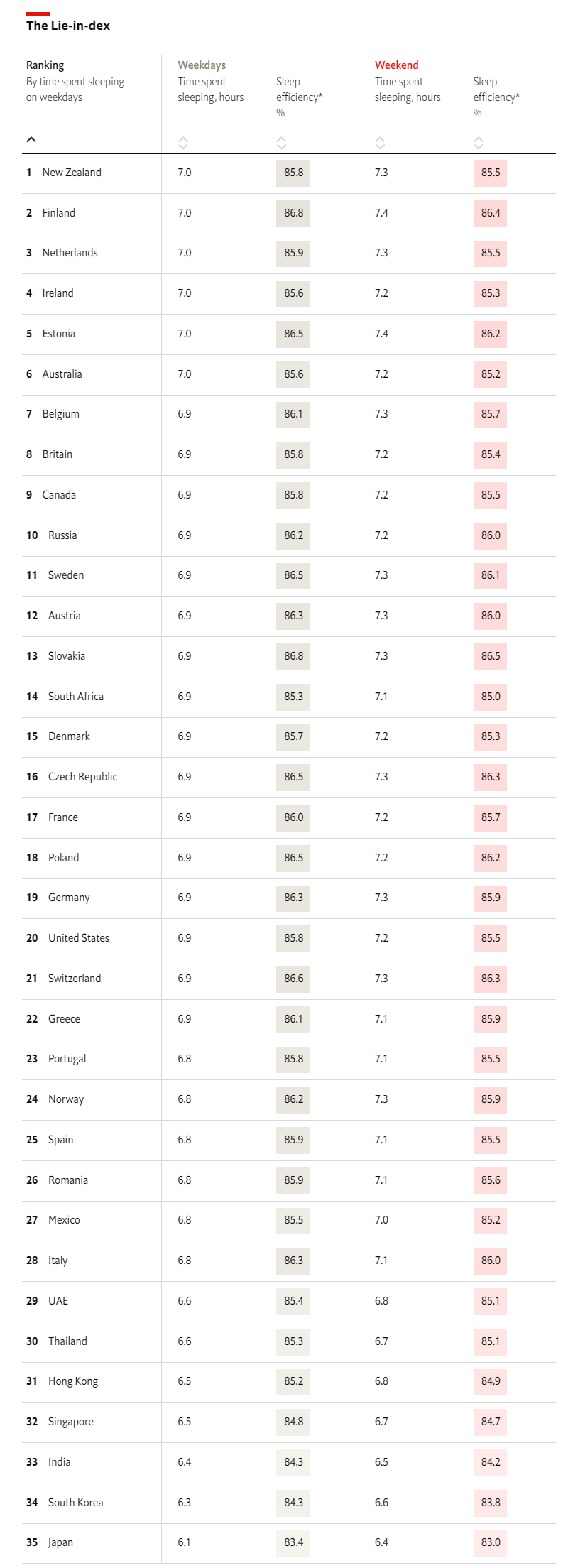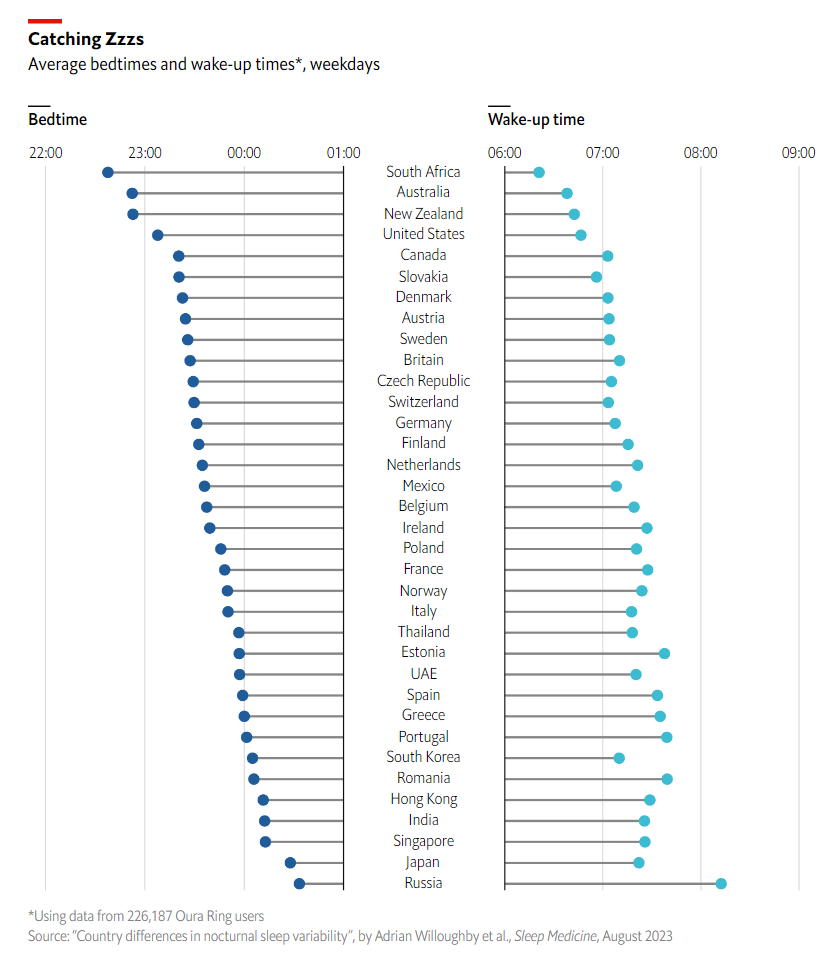
Graphic detail | Daily chart
Sept. 19, 2023
Sleep is essential to human health. It takes up around one-third of people’s lives. And yet surprisingly little is known about it. Understanding of how sleep varies across countries is particularly limited. It is well known, for example, that people in east Asia tend to sleep less than those in America or Europe, but not whether the quality of their sleep is better or worse. Surveys show that some countries are peopled by night owls, but others by early birds. But why this is so remains an open question.
A new paper attempts to fill some of the gaps. Using anonymised data collected from a popular wearable device between January 2021 and January 2022, researchers from the National University of Singapore and Oura Health, a Finnish sleep-tech startup, analysed the sleep habits of more than 220,000 people across 35 countries. Whereas sleep research has historically relied on survey data collected from a small number of people at a single point in time, sleep-tracker apps can track sleep objectively, from the movements, heart rates and body temperatures of large samples of users over long periods. You can see how countries stacked up in our interactive Lie-in-dex below.

*Sleep time as a share of time in bed
Source: “Country differences in nocturnal sleep variability” by Adrian Willoughby et al., Sleep Medicine, August 2023; Data from 226,187 Oura Ring users from January 2021 to January 2022
The researchers found that sleep patterns vary considerably across countries. As expected, the worst sleepers are mainly in Asian countries, where on a typical weeknight people snooze for less than six and a half hours—roughly 30 minutes less than those in the rest of the world. The best sleepers are mainly in northern European countries (Estonia, Finland, Ireland and the Netherlands) and in Australia and New Zealand, where users log a solid seven hours on average. Bedtimes and wake-up times tend to move together (see chart), though the authors note that Asian sleepers tend to fall asleep 35 minutes later than the average, and wake up around the same time as people elsewhere.

Sleep quantity also tends to go hand-in-hand with sleep quality. Previous experimental research has shown that, when they have less time to sleep, people tend to make the most of it, spending a higher proportion of time sleeping and less time counting sheep. This study found the opposite. People in Asia not only go to bed later and sleep less than folk in other parts of the world; they also spend more time tossing and turning. Their sleep is less consistent, too. You might expect that such poor sleep during the week might lead to more sleep on weekends, when people across the world tend to sleep five to 25 minutes longer. But the authors found that, even though Asian sleepers doze less than Europeans during the week, they also enjoy less “catch-up” sleep on Saturdays and Sundays.
The researchers conclude that social factors—including child-care, work and cultural practices—may matter more for sleep than previously thought. Observance of the dawn prayer may hinder sleep in Muslim countries, for example. The same goes for afternoon siestas in Mediterranean countries such as Spain, Greece and Italy. The authors hypothesise that work may play a particularly important role in shaping sleep patterns around the world. Time-use surveys, they note, show a strong relationship between long work hours and short sleep. Even after accounting for holidays, South Korean workers toil for 36.5 hours per week, on average, compared with just 27 hours for the Dutch. It is little wonder Koreans get 40 minutes less shut-eye per night. ■


